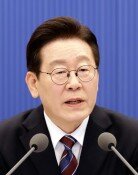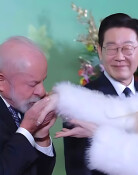Incorporation Regulations to Be Eased
Incorporation Regulations to Be Eased
Posted June. 22, 2006 03:06,
Starting next year, companies will be able to use similar firm names regardless of regional location or type of business.
Currently, a firm cannot be established with a similar name already being in use in the same region, including Seoul, Busan and Gwangju.
Measures are being pushed so that founders of venture companies which do not have the investment funds will be given management rights if the company has the technology, and small companies will be exempted from the obligation to appoint an auditor.
The Ministry of Commerce, Industry and Energy (MOCIE) and the Korea Institute for Industrial Economics and Trade (KIET) announced the above measures in its plan to reform the incorporation process on Wednesday, June 21.
The MOCIE and the Ministry of Finance and Economy are planning to revise related laws including the corporation act, certified judicial scriveners act and notary public act.
No-par Stocks of Venture Founders to be Acknowledged-
According to the revision, the government will not restrict the use of similar firm names even in the same type of business as long as the companys address or name is not the same.
The KIET took a survey on 111 medium and small-sized companies at the beginning of this month and found that three out of 10 start-up companies were regulated for having same or similar company names at the time of incorporation. This means that many companies are having difficulty establishing a firm due to company names.
Director Yang Hyun-bong of the small and venture business division at KIET said, Company establishment will vitalize if regulations are lifted at the beginning and punishment inflicted afterwards on those who make unfair profits from using similar names.
Also, no-par stocks of venture company founders will be acknowledged so that many of those with technology may have the chance to set up a company.
Currently, stakes are calculated by the number of par value stocks, and so a sufficiently funded person who buys a massive amount of the companys stocks usually exercised management rights. Founders whom did not have the funds will now be able to keep their management rights as the revised law will grant voting rights to stocks with a par value of 0 won.
Reducing Prior Regulations Increases Autonomy-
In order to establish a corporation in Korea, some 48 documents including a minute book of the board of directors and custody certificate of paid-in capital are needed. In contrast, the U.S. requires only five documents, including an application and the articles of incorporation.
The incorporation process goes through 16 stages in Korea, but 13 in the U.S. An average of 995,000 won is used in expenses in Korea for incorporation, approximately 1.8 times higher than the U.S. average of 565,000 won.
Considering these points, the MOCIE has decided to eliminate the process of authenticating the minute books of the inaugural meeting and board of directors.
Some seven out of 10 companies responded to KIETs survey that the authentication process is perfunctory and merely confirms whether the required documents are all prepared or not, meaning the current system is not practical.
MOCIE director Kim Ho-won said, The revision will cut down prior regulations and increase a companys autonomy, and so if there is not much opposition, we will go ahead with the revision.
Concerns Over a Flood of Bogus Companies-
However, some experts are concerned that if the incorporation process becomes too simplified, it may damage legal stability.
If the registration of a similar company name is permitted, it may harm the interests of the originally registered company, and eliminating the authentication process may lead to an overflowing number of bogus companies.
Lawyer Jang Jae-hyeong of Seoul Jaeil, a law firm specializing in corporate related laws, said, It is good to create more jobs, but is there really the need to revise the controversial incorporation process? Rather, the set up process for an individual enterprise should be simplified.
legman@donga.com







